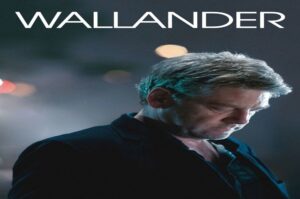Lockdown, Lowdown… Ringside Report Looks Back at the TV Show Wallander
By Donald “Braveheart” Stewart
Scandi Noir has made an impression on British TV audiences in a way that no televisual phenomenon has managed to so do since the influx of American shows in the 1970’s. There has been a hunger consistently to bring more than just Borgen or the Bridge to our screens as audiences ate up the latest installments and demanded much, much more.
Deep, dark and brooding landscapes with a bleakness that matched the characters on screen, we found this connection between their environment and their rich beauty in depth of complex people irresistible.
But in 2008, none other than Kenneth Branagh was to take on, thanks to the BBC, a much-loved Scandinavian character who was known to Scandi-noir audiences but also the Swedish crime aficionados as one of their own and a damn decent one at that – Wallander.
Sweden had already got Krister Henriksson brooding all over their TV sets as Wallander in the original language, so did not really need an acting British heavyweight to throw their weight around but what we got was a cracking program that brought Wallander to a much wider audience.
Based on the novels of Henning Mankell, this widely popular detective, Kurt Wallander, is a man of deep thinking and philosophy. Living in a small Swedish town – Ystad – his vista goes far beyond the horizon he can see from there. His searing empathy with the victims of crime, refusing to allow the violence he encounters to be normalized marks him out as less of a clichéd hard-bitten cop who has seen it all than a brooding optimist who believes that what he does makes a difference. But the effect of living in an outlook which is out of step with everyone else is that his personal life becomes a wasteland that he alone inhabits rather than filling it full of like-minded people. That isolation makes the whole 4 series and 12 episodes much more intriguing.
It was made by the BBC, with a number of multi-country investments from in and outside Europe, with style and panache to each of the 12 episodes. The 90-minute filmic format and an assured visual style and strong performances made it a must watch for those of us with any kind of interest in crime dramas. I have to say that the Scandi-noir phenomenon, while it has not passed me by completely, has left less of an indelible mark upon my viewing pleasure than others. Subtitles, I find very helpful, but now and again I could do with not reading the screen!
There were some notable names that accompanied Branagh’s onto the credits, not least of all Tom Hiddleston as Magnus Martinsson, and David Warner as Wallander’s father Povel.
What I found interesting was that Branagh had not been first choice to play Wallander. Mankell had been looking for an English translation version of his books for TV and a number of well-known British actors had been suggested before he met Branagh by chance at a festival – Branagh asked to play him. How could Mankell refuse?
What I found most fascinating was Wallander’s relationship with his father, which was a constant throughout the drama. Povel, an artist, suffers from Alzheimer’s and this portrayal was both sympathetic and highly effective. Sitting in his art studio daily and painting the same painting day after day, Povel has a marked effect on Wallander. Not least, when, after his father’s passing, the hints and symptoms of Alzheimer’s appear to have been passed from father to son.
Wallander gathered a huge number of richly deserved awards and brought the classic of another country front and center onto our stage. I have watched the whole four series, bought a book or two though have still to read them, but the effect of the visual beauty, the tight nature of the scripts, the Scandinavian style interpersonal relationships on show and a storming performance from a cast headed by a real great made them an essential part of our cannon of crime dramas which bear returning to time and again to remind us what really good drama should be in this genre.
British television is a curious affair. Begun through the British Broadcasting Corporation (BBC) it is funded through the universal license fee. In essence, if you wanted to watch the television, you had to pay the license fee. The BBC got it all and is state run, albeit at arms-length. Then came along commercial television in the form of Independent Television (ITV) in 1955. Designed to bring a bit of competition to the BBC, it was paid for through advertising but still free to air… well they didn’t add another license fee to it. By the time that I was born, 1965, there was BBC1, BBC2 and ITV. And that was it. It was still years before Bruce Springsteen would moan that there were 55 channels and nothing on but here in the UK, we kept this going until, in 1982, we added a fourth channel and in 1997, a fifth. With sparkling imagination, they were called Channel Four and ehm Channel Five… In between came Sky and we understood what Springsteen meant. And so, my childhood and leading up to early adulthood we had three options… But the programs made were exceptionally good. And so, here is some critical nostalgia as the lockdown has brought a plethora of reruns, new formats and platforms and old classics trying to make their way back into our consciousness as broadcasters flood their schedules with classics… or are they classics at all? Let me take you through an armchair critics’ view of what we have to see, to find out… Welcome to the Lockdown Lowdown…
Click Here to Order Boxing Interviews Of A Lifetime By “Bad” Brad Berkwitt


